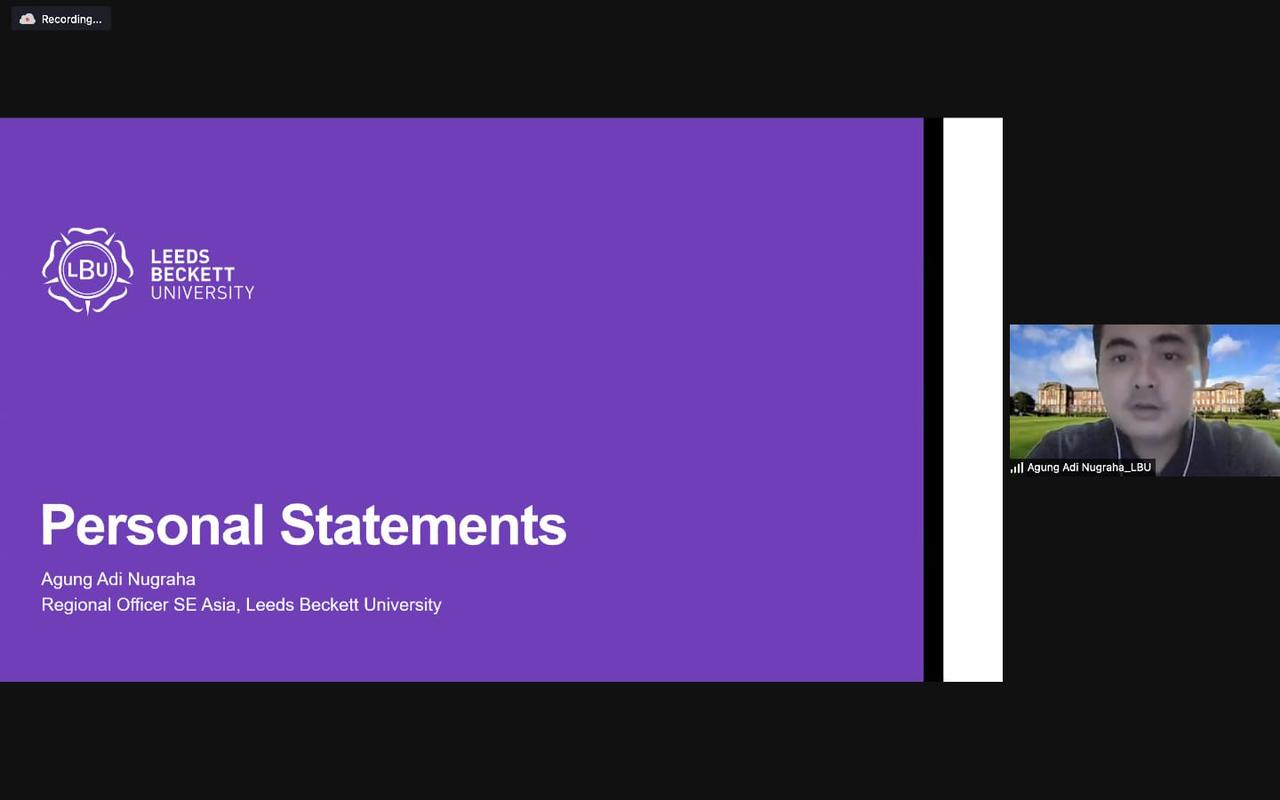

What's happening in PresUniv

Wednesday (18/8), the Internship and Career Center (ICC) Bureau, President University (PresUniv), in collaboration with the Leeds Beckett University and the British Chamber of Commerce in Indonesia, held a webinar entitled “Personal Statement 101: The Do's, The Don'ts, and The How's with Leeds Beckett University”. This webinar discussed the importance of a personal statement to continue postgraduate studies (S2). A personal statement is an attachment that contains a person's statement about their personality, skills, achievements, and reasons why they want to apply for a scholarship or to the destination university. The speaker presented in this webinar was Agung Adi Nugraha, Regional Officer South East Asia, Leeds Beckett University.
According to Agung, an excellent personal statement must have five things, which are the ability to write (grammar, punctuation, sentence structure, creativity, and expression), explain the relevance between experience and education with the goals to be achieved, the reasons for taking the chosen major, the owned uniqueness, as well as how to become an asset for the targeted university. "These five things will be added value in the personal statement so that it will be easier to get accepted when applying for scholarships or the destination university," said Agung. Not to forget, he also urged PresUniv students to convey their strengths, both experiences and achievements, in the form of stories.
Agung then reminded that a good personal statement must consist of a minimum of 1,000 words and a maximum of 4,000 words or 47 lines. In addition, a personal statement should not be used repeatedly for different majors or universities because the results will not be optimal. “Because this personal statement should not be general. So, it will definitely not be suitable if used repeatedly," he said. Agung also explained the key to an excellent personal statement: to write not in a hurry, use the right words, focus on strengths, be honest, make strong opening sentences, and ask for help from others to proofread the Personal Statements that have been made. (Steven Chaniago, Photo: Steven).